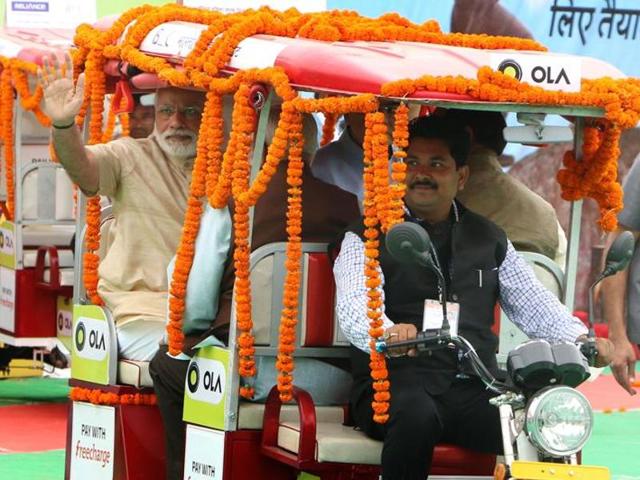Modi’s Stand Up India scheme will ease pressure on job reservations
Serving central government employees in India , based on the beneficiaries of the 7th Pay Commission this year, add up to only 4.8 million.
Consider a few key numbers.

Serving central government employees in India , based on the beneficiaries of the 7th Pay Commission this year, add up to only 4.8 million.
According to an employment portal, the number of all government job vacancies in India this month, including extended ones in public sector companies, state governments and universities, is only 82,451.
Now, look at the population of Dalits in India. Officially called the Scheduled Castes, they totalled more than 200 million in the last census held in 2011. That should illustrate the humongous shortage of jobs in the country as we look at inclusive growth.
Anyone looking at the Dalit problem solely through the prism of reservation by quotas should realise that government jobs are an expensive way to uplift their lot, considering that even a clerk earns about Rs 46,000 a month on average, according to respected salary tracking portal, Glassdoor.com.
Therefore, it made eminent sense this week when Prime Minister Narendra Modi launched the Stand Up India programme that aims to help Dalits and tribals with loans for entrepreneurial activity, with a call that people should change from being job seekers to job creators.
The scheme offers bank loans of between Rs 10 lakh and Rs 1 crore for scheduled castes and scheduled tribes and women setting up new enterprises outside of the farm sector. The initially intended beneficiaries total only 125,000 -- but that’s more than the number of all government job vacancies open at the start of the current financial year.
The simple fact is that the scheme still leaves out millions of farmhands and menial workers who may still have to suffer discrimination and exploitation at the hands of land owners from dominant castes. At a population of 200 million , there are roughly 40 million Dalit families out there . The new loan scheme will only scratch the surface. But it is a significant leap from the government-job dependent culture in which fiscal costs run high for the State, hitting other activities such as building of infrastructure to fuel economic growth.

More important, the Stand Up India scheme, by focusing on entrepreneurship, enables creativity that may not be defined by academic qualifications but one that should result in productive work. For landless Dalits, whose current options may be limited to working as menial servants or farm hands or struggle through education to get government jobs, this is a window of opportunity to rise from their status as untouchables over the centuries.
Above all, the scheme may also help Dalits join the mainstream of an Indian economy that is no longer dominated by the government, and provide social mobility. There is already a Dalit Chamber of Commerce and Industry of India (http://www.dicci.org/). Its members may multiply , thanks to the scheme.
All this would hopefully ease the pressure on controversial reservations in government jobs – which involves a separate debate on whether job quotas hurt efficiency of public service done by government workers. India’s private sector is also reluctant to accept job quotas.
However, two hard questions loom: Is the move a political gambit by Modi ‘s BJP to grab votes in next year’s UP elections? Will the loans actually reach the intended beneficiaries?
There are no easy answers, but it pays to hail political measures that usher in positive social change.
In the end, the Dalits who gain – or not – will call the shots.



